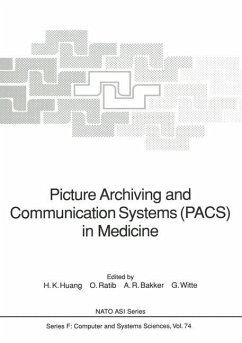
Computerizing Large Integrated Health Networks
The VA Success
Herausgegeben: Kolodner, Robert M.;Mitarbeit: Douglas, J.V.
Versandkostenfrei!
Versandfertig in 1-2 Wochen
75,99 €
inkl. MwSt.

PAYBACK Punkte
38 °P sammeln!
This book has been a long time in the making. The computerization activi ties described in these pages began in 1977 at the Department of Veterans Affairs (VA), but we devoted most of our focus and efforts to building and then implementing the extensive hospital information system known as the Decentralized Hospital Computer System (DHCP) throughout VA. Deliv ering the product has been our primary goal. We spent relatively little time documenting or describing our experiences or lessons learned. Except for some presentations at national meetings and a relatively few publications, almost none o...
This book has been a long time in the making. The computerization activi ties described in these pages began in 1977 at the Department of Veterans Affairs (VA), but we devoted most of our focus and efforts to building and then implementing the extensive hospital information system known as the Decentralized Hospital Computer System (DHCP) throughout VA. Deliv ering the product has been our primary goal. We spent relatively little time documenting or describing our experiences or lessons learned. Except for some presentations at national meetings and a relatively few publications, almost none of which were in the standard trade journals read by Chief Information Officers (CIOs) and equivalent top managers in the private and nonprofit sectors, VA's accomplishments remained a well-kept secret. In 1988, Helly Orthner encouraged VA staff to consider writing a book, but the press of day-to-day activities always seemed to take precedence, and the book languished on the back burner.














